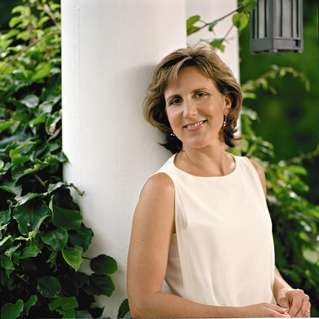|
Back
Surprising contexts Toronto
Koerner Hall
04/22/2012 -
Anton Webern: Five Pieces for Strings, Op. 5
George Crumb: four movements from Black Angels
Maria Schneider: Winter Morning Walks
Robert Schumann: Mondnacht, Op. 39, No. 5 (arr Jordan)
Franz Schubert: Geheimes, D. 719 (arr. Brahms) – Der Tod und das Mädchen, D. 810 (arr Tognetti)
Arnold Schoenberg: Verklärte Nacht, Op. 4
Dawn Upshaw (soprano), Scott Robinson (clarinets), Jay Anderson (double bass),
Frank Kimbrough (piano)
The Australian Chamber Orchestra, Richard Tognetti (Artistic Director and lead violin)

D. Upshaw (Courtesy of the Royal Conservatory)
This concert by the Australian Chamber Orchestra with Dawn Upshaw gave the audience a slew of unexpected treats.
The main work of the concert was the cycle of nine songs, Winter Morning Walks, by American jazz composer Maria Schneider, to poems by Ted Kooser. Aside from the string orchestra, three other instrumentalists acting as a kind of jazz continuo are employed: Jay Anderson, double bass, Frank Kimbrough, piano, and Scott Robinson on clarinets. Chances for improvisation “from performance to performance” are built into the piece, although it was hard to tell if there was any improvisation occurring at this performance given that the three instrumentalists were placed behind Ms Upshaw (thus no chance for eye contact) and even behind the orchestra. The vocalise with clarinet accompaniment that ends the first song “Perfectly still this solstice morning” is no doubt a result of the performers’ collaboration.
The poems are unrhymed laconic observations drawn from (as the title states) winter morning walks in the rural US mid-west. The drama is more inward than outward but covers a range of emotions which are expressed in the songs, each one distinctly different. While the musical idiom is jazz, it is a pretty mellow, introspective variety, with much of the sonics more reminiscent of American folk music (of course jazz is really an American folk category as well.) The third song, “Walking by flashlight” has a gentle swing to it but achieves a kind of grandeur (with mention of the moon) at the end. The fifth song, “My wife and I walk the cold roads” has an orchestral interlude (following a reference to mortality - the poet had cancer at the time) that reminds one of Aaron Copland.
This appearance is just one stop on an eight-city tour which gives the performers time to become well acquainted with the material before recording it. Dawn Upshaw sounds her usual wonderful self in all this. She is still following the score but is not riveted to it. The project is obviously going well. The recording is to take place in May.
The program opened with an unusual intermixed performance of two avant garde works composed 60 years apart: the short movements of Anton Webern’s Five Pieces for Strings (composed in 1910) were separated by four movements from George Crumb’s Black Angels, completed in 1970 with the Vietnam war as its background. The movements performed were the first, second, eighth and tenth sections of Crumb’s 13-movement work. The Webern pieces are the typically short, spasmodic utterances that are his trademark, while the Crumb movements are even shorter - and more violent, with players making vocal shrieks and clicks (all amplified) and three players rubbing their bows across 20 crystal glasses containing varying amounts of water (it was the first piece played by the pioneering Kronos Quartet). One is surprised to see such a complicated piece being taken on tour. As the program notes stated, the intention was to make the Webern (the name frightens audiences still today) almost “lushly romantic”. Mission accomplished. (Now I now want to hear the entire Black Angels.)
After the interval Ms. Upshaw sang three lieder from the core 19th century repertory, but with orchestral accompaniment, instead of the usual piano. Schubert’s Der Tod und das Mädchen, arranged by the ACO’s director, Richard Tognetti, was the high point here, with Ms. Upshaw effectively characterizing the two voices. Schumann’s much-loved Mondnacht was also given a glowing performance, and Schubert’s rather tart Geheimes (orchestrated by Brahms) provided a nice contrast.
Concluding the program was a wonderfully involving performance of Arnold Schoenberg’s early masterpiece, Verklärte Nacht. The ACO orchestral players stand while performing (cellists excepted), a factor that seems to contribute to an extra level of alertness, while lead player Richard Tognetti maintains a firm grip on proceedings. The name Schönberg (like Webern) is also considered box office poison, but this piece - as was this performance - is warm and (overall) tonal, with dramatic tension and release. It is hard to believe that its brief atonal passage caused such a controversy at its 1902 premiere.
Michael Johnson
|